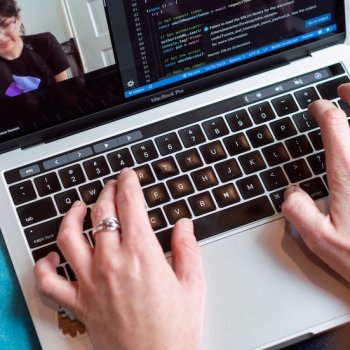For the college graduating class of 2021, it's been anything but a smooth ride.
During junior year, they left campus to learn virtually at the height of the pandemic. This carried into the Fall 2020 semester, and it wasn't until the Spring 2021 semester that some semblance of a normal college experience was restored.
After graduating, they entered a working world that is still figuring out remote work and a path forward in this new normal. Added to this is the fact that many lost valuable social and professional development time as the pandemic diminished both internship and college campus networking opportunities.
So how are they doing?
To answer that, Breeze surveyed 1,000 members of the class of 2021.
We found they were bullish on salary expectations, preferential towards remote work, and feeling as though the pandemic stunted their career growth.
60% have found full-time employment
Amongst our survey participants from the college graduating class of 2021, 60% have landed a full-time job, while 40% have not.
There were no gender differences here, as 60% of male respondents and 60% of female respondents have secured employment, while 40% have not.
Learn More: What to do when you're unemployed
They expected a $70,000 starting salary, $60,000 was reality
All 1,000 respondents were asked what they expected to make at their first full-time job after college; $70,000 was the median answer.
But when we asked those '21 grads who have found employment what their actual salary was, $60,000 was the median answer. It's good to be ambitious on salary expectations, but a lower salary is the reality for most college grads.
When broken down by gender, there was a noticeable contrast as male grads were more bullish on their salary expectations compared to female grads.
For reference, data from Staffing Industry Analysts found the average starting salary for a class of 2019 graduate to be $53,889.
67% took a pay cut for remote work
Amongst grads that secured work after graduating, 37% took a job that was full-time remote, while 35% have a job that is remote flexible (i.e. hybrid), and 27% have a job that is in office full-time.
Two-thirds with remote work to some degree indicated they took a pay cut to have the ability to work from home.
In August, Google made waves when Reuters reported the company created a calculator for employees to see how much their salary would be cut if they remained at home permanently.
The majority of '21 grads who are working remotely to some degree also indicated that remote work will be THE most important deciding factor at future job opportunities.
This sentiment matches a previous remote work survey completed by Breeze, which found many Americans were willing to forego pay, PTO, or health insurance in order to retain remote work.
It's become clear that employers have to treat remote work as one of the best benefits for employees and must try to incorporate remote flexibility into their hiring plans if they are to attract and retain the best talent.
Amongst survey participants that accepted a job without remote work flexibility, 40% regretted doing so, while 60% did not.
Unemployed '21 grads want remote work, but won't be picky
For '21 grads that have yet to find work, 58% are looking for a job with remote work flexibility, while 42% are not.
Amongst the former, two-thirds would take a smaller salary for remote flexibility.
However, they're not going to be overly picky because 61% from this same group (58% who are looking for a job with remote work flexibility) said they would still "accept a job that has no remote work flexibility and makes you come into the office 100% of the time," while 39% would not.
The great resignation? 24% have already left first full-time job
"The Great Resignation" might be the hottest buzz-phrase in the HR world today. It refers to the millions of Americans who have quit their jobs in recent months due to a combination of the pandemic, remote work, and changing priorities.
Are '21 grads contributing to the trend? Amongst survey participants who have found full-time work since graduating, 24% have left that job already, while 76% have not.
For the 24% that have moved on, here were some common reasons:
61% believe pandemic negatively impacted their career development
When we asked all 1,000 class of '21 grads if they believe college adequately prepared them for a career and "the real world," 61% said it did, while 39% said it did not.
But this college graduating class had anything but a normal higher ed experience as the pandemic shut down campuses and ushered in virtual learning.
And most believe such unprecedented circumstances did hurt their career progression and maturation.
When asked why they believe the pandemic negatively impacted their development, most '21 grads cited the time lost to develop social skills.
Many '21 grads considering disability insurance
Disability insurance is a type of insurance coverage that will replace a portion of your monthly income if injury or illness prevents you from working for a period of time.
There is short term disability insurance, which replaces your income during a temporary injury or illness that keeps you out of work for a limited amount of time. An example of such an injury would be a broken hand. Benefits for short term disability usually last around three to six months.
Then there is long term disability insurance, which serves the same purpose but is intended to protect your income against more serious injuries or illnesses, like cancer or an injury that leaves you permanently disabled. The benefits period on this product will usually be two, five, or ten years.
Disability insurance for young adults, like '21 college grads, is usually more affordable because it is being obtained at a younger, healthier age. In fact, we found many '21 grads are actually considering taking out a disability insurance policy to protect their income at a current or future job.
When all 1,000 respondents were asked the following: "At your current or future job, would you consider taking out a disability insurance policy to protect your income in the event you are unable to work for an extended period of time due to injury or illness?"
The answers looked like this:
- 26% answered "Yes, I am actively looking into taking out a disability insurance policy or have already applied/taken out a policy."
- 24% answered "Yes, I will consider it."
- 16% answered "not sure"
- 12% answered "No, I will not consider it."
- 11% answered "No, I am not considering it."
- 11% answered "I don't know what disability insurance is."
Get a personalized disability quote in seconds.
Methodology
All data found within this report derives from a survey commissioned by Breeze and conducted online by survey platform Pollfish. In total, 1,000 adult Americans between the ages of 22 and 30 were surveyed. To qualify for the survey, each respondent had to have graduated from a four-year college or university as part of the class of 2021 with plans to immediately enter the workforce. The appropriate respondents were found via Pollfish’s age filtering feature, in addition to a screener question. While only 1,000 respondents qualified, 6,563 total respondents answered the survey. This survey was conducted over a five-day span, starting on September 3rd, 2021, and ending on September 7th, 2021. All respondents were asked to answer all questions truthfully and to the best of their abilities.
Survey results
Notes: Some answers won't add up to exactly 100% due to rounding.
If you'd like to see the raw data or data broken down by state, gender, race, age, etc., please email me at [email protected]
1. (ALL) Since graduating from college as part of the class of 2021, what did/do you EXPECT your salary to be at your first full-time job?
- The median expected salary was $70,000.
2. (ALL) What was your major/concentration of study at your four-year college or university?
- 18% answered "business & finance"
- 9% answered "social sciences & history"
- 9% answered "engineering"
- 7% answered "biological & biomedical sciences"
- 7% answered "communication & journalism"
- 8% answered "education"
- 8% answered "health professions"
- 8% answered "psychology"
- 7% answered "visual & performing arts"
- 11% answered "computer & information sciences"
- 9% answered "other"
3. (ALL) Since graduating from college as part of the class of 2021, have you landed a full-time job?
- 60% answered "yes"
- 40% answered "no"
4. (Asked only to those who answered "yes" to Q3) What is/was your salary at this full-time job?
- The median salary was $60,000.
5. (Asked only to those who answered "yes" to Q3) Does/did this full-time job have remote work flexibility?
- 37% answered "Yes, it is/was full-time remote."
- 35% answered "Yes, it is/was remote flexible (i.e. remote-office hybrid)."
- 27% answered "No, I am/was in the office full-time."
6. (Asked only to those who answered "yes" to Q3 & some variation of "yes" to Q5) Did you take less salary at this full-time job to retain remote work flexibility?
- 67% answered "yes"
- 33% answered "no"
7. (Asked only to those who answered "yes" to Q3 & some variation of "yes" to Q5) Moving forward, will an employer having remote work flexibility be one of the most important deciding factors at future job opportunities?
- 58% answered "Yes, it will be THE most important deciding factor."
- 28% answered "yes"
- 14% answered "no"
8. (Asked only to those who answered "no" to Q5) Do you regret taking a job that has no remote work flexibility?
- 40% answered "yes"
- 60% answered "no"
9. (Asked only to those who answered "yes" to Q3) Are you still at this same full-time job?
- 76% answered "yes"
- 24% answered "no"
10. (Asked only to those who answered "yes" to Q3 & "no" to Q9) Why are you not still at this same full-time job?
- 12% answered "I landed a new job that's a better fit."
- 6% answered "I landed a new job that pays better."
- 9% answered "I landed a new job that has a better remote work policy."
- 8% answered "I was fired/laid off."
- 11% answered "I quit because it was not a good fit for me."
- 6% answered "I quit because I wasn't making enough money."
- 7% answered "I quit because of the remote work-in office policy."
- 9% answered "I quit to start my own business."
- 11% answered "I quit to figure out what I really want to do."
- 10% answered "I quit to enroll in further education (i.e. law school, MBA)."
- 10% answered "other"
11. (Asked only to those who answered "no" to Q3) Have you had any progress with your job search (i.e. interviews, offers, etc.)?
- 53% answered "yes"
- 47% answered "no"
12. (Asked only to those who answered "no" to Q3) Are you looking to take a full-time job that has remote work flexibility?
- 58% answered "yes"
- 42% answered "no"
13. (Asked only to those who answered "no" to Q3 & "yes" to Q12) Would you accept a job with a smaller salary if it had remote work flexibility?
- 66% answered "yes"
- 34% answered "no"
14. (Asked only to those who answered "no" to Q3 & "yes" to Q12) Will you accept a job that has no remote work flexibility and makes you come into the office 100% of the time?
- 61% answered "yes"
- 39% answered "no"
15. (ALL) Do you believe that your college adequately prepared you for a career and the “real world?”
- 61% answered "yes"
- 39% answered "no"
16. (ALL) Do you believe the COVID-19 pandemic, campuses shutting down, and remote learning had a negative impact on your career development/maturation?
- 61% answered "yes"
- 40% answered "no"
17. (Asked only to those who answered "yes" to Q16) Why do you believe the COVID-19 pandemic, campuses shutting down, and remote learning had a negative impact on your career development/maturation?
- 24% answered "I lost time to develop valuable social skills."
- 23% answered "I lost time to learn from professors and utilize their experience/professional connections."
- 23% answered "My learning was stunted by not being in the classroom and only learning virtually."
- 16% answered "I lost time to mature & learn life skills that come with living on a college campus."
- 14% answered "other"
18. (ALL) At your current or future job, would you consider taking out a disability insurance policy to protect your income in the event you are unable to work for an extended period of time due to injury or illness?
- 26% answered "Yes, I am actively looking into taking out a disability insurance policy or have already applied/taken out a policy."
- 24% answered "Yes, I will consider it."
- 16% answered "not sure"
- 12% answered "No, I will not consider it."
- 11% answered "No, I am not considering it."
- 11% answered "I don't know what disability insurance is."










